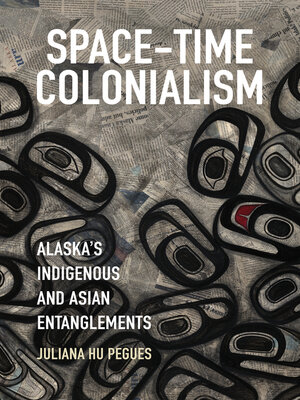Space-Time Colonialism
ebook ∣ Alaska's Indigenous and Asian Entanglements · Critical Indigeneities
By Juliana Hu Pegues

Sign up to save your library
With an OverDrive account, you can save your favorite libraries for at-a-glance information about availability. Find out more about OverDrive accounts.
Find this title in Libby, the library reading app by OverDrive.



Search for a digital library with this title
Title found at these libraries:
| Library Name | Distance |
|---|---|
| Loading... |
As the enduring “last frontier,” Alaska proves an indispensable context for examining the form and function of American colonialism, particularly in the shift from western continental expansion to global empire. In this richly theorized work, Juliana Hu Pegues evaluates four key historical periods in U.S.-Alaskan history: the Alaskan purchase, the Gold Rush, the emergence of salmon canneries, and the World War II era. In each, Hu Pegues recognizes colonial and racial entanglements between Alaska Native peoples and Asian immigrants. In the midst of this complex interplay, the American colonial project advanced by differentially racializing and gendering Indigenous and Asian peoples, constructing Asian immigrants as “out of place” and Alaska Natives as “out of time.” Counter to this space-time colonialism, Native and Asian peoples created alternate modes of meaning and belonging through their literature, photography, political organizing, and sociality.
Offering an intersectional approach to U.S. empire, Indigenous dispossession, and labor exploitation, Space-Time Colonialism makes clear that Alaska is essential to understanding both U.S. imperial expansion and the machinations of settler colonialism.
Offering an intersectional approach to U.S. empire, Indigenous dispossession, and labor exploitation, Space-Time Colonialism makes clear that Alaska is essential to understanding both U.S. imperial expansion and the machinations of settler colonialism.







